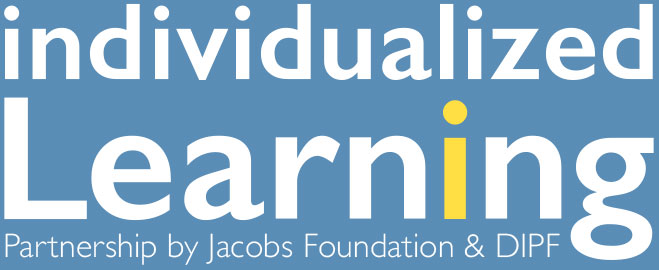
Prof. Dr. Garvin Brod
Arbeitsbereichsleiter
Individualisierte Förderung
+49 (0)69-24708-139
g.brod@dipf.de
Projekte: ACHILLES, iLearn, PREDICT, PROMPT
ResearchGate, Google Scholar, OSF, Twitter
Informationen zur Person, zu Forschungsinteressen und Publikationen auf der Website des DIPF
Ausgewählte Publikationen
Brod, G. (2024). There Are Multiple Paths to Personalized Education, and They Should Be Combined. Current Directions in Psychological Science.
Theobald, M., Colantonio, J., Bascandziev, I., Bonawitz, E. & Brod, G. (2024). Do reflection prompts promote children’s conflict monitoring and revision of misconceptions? Child Development.
Theobald, M., Bäulke, L., Bellhäuser, H., Breitwieser, J., Mattes, B., Brod, G. , Daumiller, M., Dresel, M., Liborius, P., & Nückles, M. (2023). A Multi-Study Examination of Intra-Individual Feedback Loops Between Competence and Value Beliefs, Procrastination, and Goal Achievement. Contemporary Educational Psychology.
Breitwieser, J., Nobbe, L., Biedermann, D., & Brod, G. (2023). Boosting self-regulated learning with mobile interventions: Planning and prompting help children maintain a regular study routine. Computers & Education.
Brod, G., Greve, A., Jolles, D., Theobald, M., & Galeano-Keiner, E.M. (2022). Explicitly predicting outcomes enhances learning of expectancy-violating information. Psychonomic Bulletin & Review.
Breitwieser, J., & Brod, G. (2022). The interplay of motivation and volitional control in predicting the achievement of learning goals: An intraindividual perspective. Journal of Educational Psychology.
Theobald, M., Breitwieser, J., & Brod, G. (2022). Test anxiety does not predict exam performance when knowledge is controlled for: Strong evidence against the interference hypothesis of test anxiety. Psychological Science.
Breitwieser, J., Neubauer, A., Schmiedek, F., Brod, G. (2022). Self-regulation prompts promote the achievement of learning goals – but only briefly: Uncovering hidden dynamics in the effects of a psychological intervention. Learning and Instruction.
Brod, G. (2021). Toward an understanding of when prior knowledge helps or hinders learning. npj Science of Learning.
Theobald, M., Brod, G. (2021). Tackling scientific misconceptions: the element of surprise. Child Development.
Brod, G. (2021). How can we make active learning work in K-12 education? Considering prerequisites for a successful construction of understanding. Psychological Science in the Public Interest.
Brod, G. (2021). Predicting as a learning strategy. Psychonomic Bulletin & Review.
Brod, G., Shing, Y. L. (2019). A boon and a bane: Comparing the effects of prior knowledge on memory across the lifespan. Developmental Psychology.
Brod, G., Hasselhorn, M., Bunge, S. (2018). When generating a prediction boosts learning: The element of surprise. Learning and Instruction.
Brod, G., Bunge, S., Shing, Y. L. (2017). Does one year of schooling improve children’s cognitive control and alter associated brain activation? Psychological Science.
Brod, G., Lindenberger, U., Wagner, A. D., Shing, Y. L. (2016). Knowledge acquisition during exam preparation improves memory and modulates memory formation. Journal of Neuroscience.
